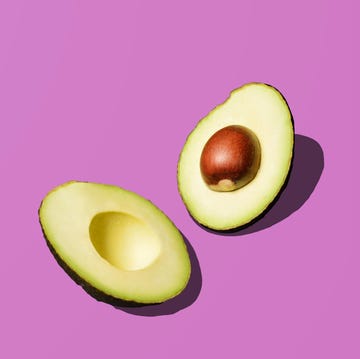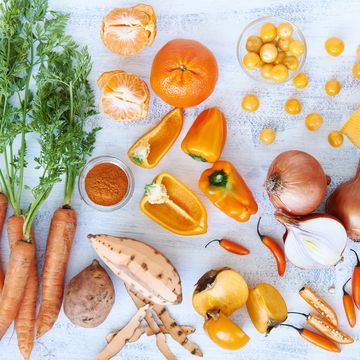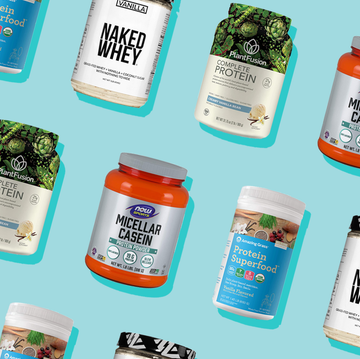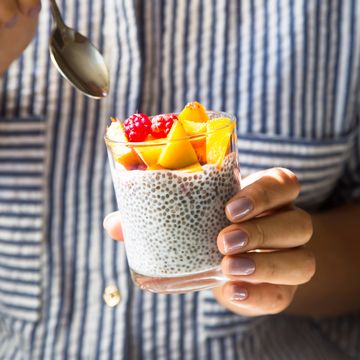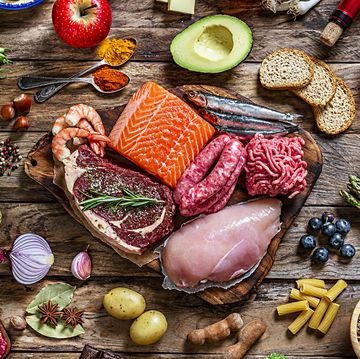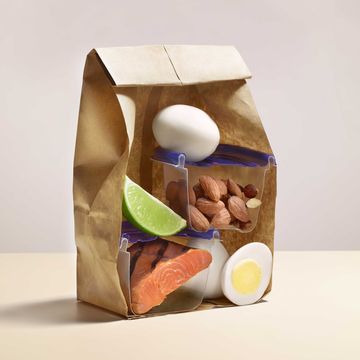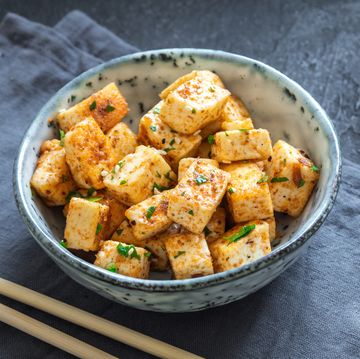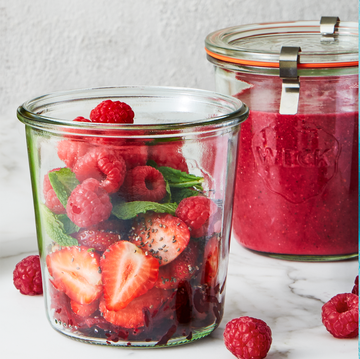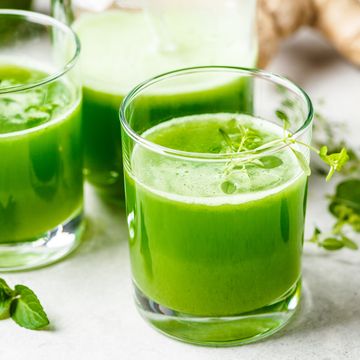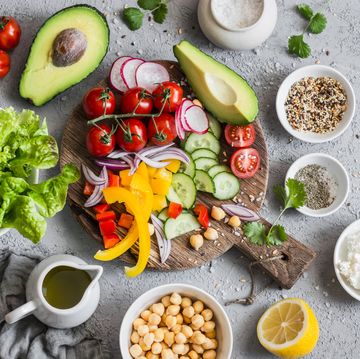Photo by Shuji Kobayashi/Getty Images
Maybe you've heard the buzz: Fermented foods are kind of awesome for you.
They often begin as whole foods, and with the help of microorganisms, their sugars and carbs are converted into compounds like lactic acid—the stuff that gives pickles and sauerkraut their signature sour taste. The process also turns these foods into probiotic powerhouses that boost levels of good bacteria in your digestive tract, improving the health and balance of your body's collective microbiome, or bacterial community. A healthier microbiome, in turn, has been shown to aid in digestion, increase immunity, prevent disease, and—according to some preliminary studies—reduce blood pressure and keep you slim. What's more, fermented foods are also easier to digest because they're already partially broken down by bacteria, says Dana White, RD, a culinary nutritionist. And whatever nutrients are in there—say, vitamin C, in the cabbage that turns into sauerkraut—are actually enhanced during the fermentation process. (Learn how to ignite your digestive system’s fat-burning furnace with Rodale's The Good Gut Diet.)
Lucky for you, it's easier than ever to load up on these super foods, thanks to a fermented renaissance that's bringing once obscure products like kombucha and kimchi to mainstream markets and restaurants. With White's help, we've rounded up some of the best fermented options—based on nutrient and probiotic content, and taste. Just remember: Aim for variety. "The probiotic strains and other nutrients in these foods are so different," says White, "so it's great to mix things up."
Miso
Miso, a traditional Japanese seasoning, is made from fermenting soybeans with salt, a fungus starter, and sometimes grains such as barley or brown rice. It's sold as a paste that can be added to soups (think miso soup), stir-fries, and even this awesome Blueberry Miso Smoothie. It also contains vitamin K and some protein. Be mindful, though, that it's often high in sodium, so a little can go a long way. We like Eden Foods Organic Hacho Miso.
Fermented Dairy: Yogurt & Kefir
Photo by James Baigrie/Getty Images
You're probably already eating a fermented food right now: yogurt. Yogurts labeled with the phrase, "Contains Live & Active Cultures" guarantee to have 100 million probiotic cultures per gram when it's manufactured—that's about 25 billion probiotic cultures in a cup of yogurt, as much as many probiotic supplements. Kefir, another fermented milk product, tastes like a slightly tangier, yet drinkable yogurt and boasts even more probiotics. Both are also good sources of protein, calcium, and vitamin D. Some great options that are free of added sugars and artificial ingredients, and contain various strains of probiotics include Nancy's Organic Probiotic Greek Yogurt and Lifeway Organic Kefir.
Cultured Coconut Milk Yogurt
Can't do dairy? No worries: cultured coconut milk, found in coconut milk yogurt, is made by adding various live active cultures to coconut milk and fermenting until it's loaded with probiotics. Some brands, like So Delicious Cultured Coconut Milk, contain a hefty dose of fiber, too.
Tempeh
Tempeh, tofu's nutty-tasting, more texturized cousin made of soybeans that have been fermented with a fungus starter, is loaded with iron, potassium, magnesium, calcium, and protein. Like tofu, it contains all essential amino acids, so it's a complete source of vegetarian protein. But because it's fermented, it's easier to digest than other soy-based products. This versatile superfood works great in stir-fries and even as a meat replacement in burgers. Look for organic soy-based products to ensure they're free of GMOs. We like Lightlife Organic Tempeh.
Kombucha
Kombucha is a naturally effervescent tea created by combining black tea, natural sugars, and bacteria and yeast. The bacteria and yeast consume the sugar, producing a fizzy, tangy drink high in probiotics, B vitamins, and acetic acid, which studies have shown can help stabilize blood glucose levels and boost satiety. Both GT's and Kevita kombucha are widely available in a variety of palate pleasing fruit flavors.
Fermented Vegetables: Pickles, Sauerkraut, & Kimchi
Photo by John Block/Getty Images
Veggies that are preserved via natural lacto-fermentation, as opposed to being brined in vinegar, are highest in probiotics. These include sauerkraut and kimchi (both made from vitamin C- and fiber-rich cabbage), and traditional sour or dill pickles. Pasteurized versions of these products, which include most mainstream brands, don't contain probiotics because they're heated to a temperature that destroys all good and bad bacteria. To ensure you're getting the real deal, look for terms on the label like "unpasteurized," "naturally fermented," "raw," or "contains live and active cultures." Of course, as with any unpasteurized food, your risk for foodborne illness is a bit greater, so be sure to refrigerate these products after opening and consume them by the date on the label. Some great probiotic-packed options include Real Pickles Organic Dill Pickles; Jacob's Raw Organic Caraway Kraut made from cabbage, apples, and caraway seeds; and Farmhouse Cultures Organic Spicy Wakame Ginger Kimchi.
MORE: 4 Ways To Boost Your Gut Bacteria
Kvass
Kvass is an Eastern European fermented drink produced similarly to kombucha, but traditionally made with rye bread and various veggies as opposed to tea. Today, however, the drink often skips the bread and is made with just veggies and fruit, a bit of salt, and bacteria and yeast. This results in a fizzy, tangy, and sometimes a bit salty beverage. While all varieties contain probiotics, the health benefits will vary depending on the produce used. We like Zukay Golden Turmeric, loaded with anti-inflammatory compounds from turmeric and ginger, and Berry Blend Kvass for it's subtly sweet tang. The one downside: It's still somewhat hard to find outside of health foods stores and grocers like Whole Foods Market.
Fermented Condiments
Yep, now you can even buy probiotic-boosted ketchup, thanks to the emerging trend of fermented condiments. Add a tangy bite to your burger with the Raw Sour K'Chup or Sunny Bang Private Label Probiotic Hot Sauce. Although they haven't made it big time yet, you can still track them down online and in some health food stores.
MORE: Your Gut Bacteria Could Be What's Making You Fat—But You Can Absolutely Change That



